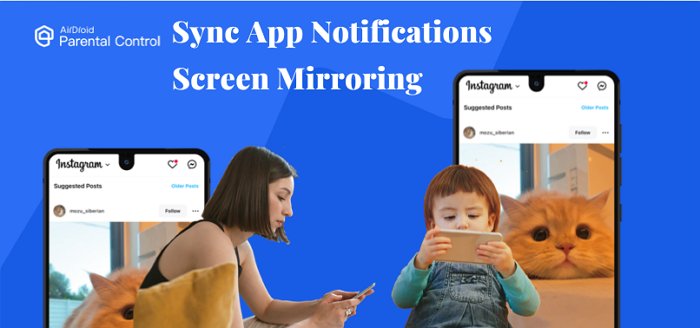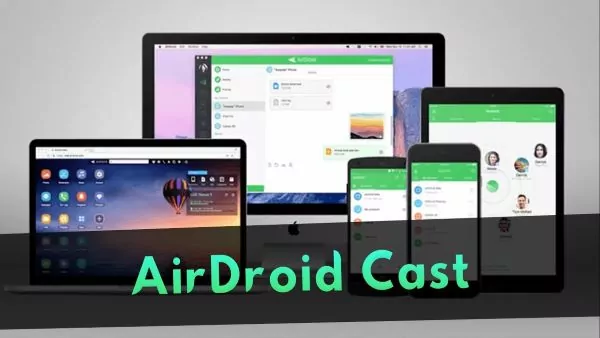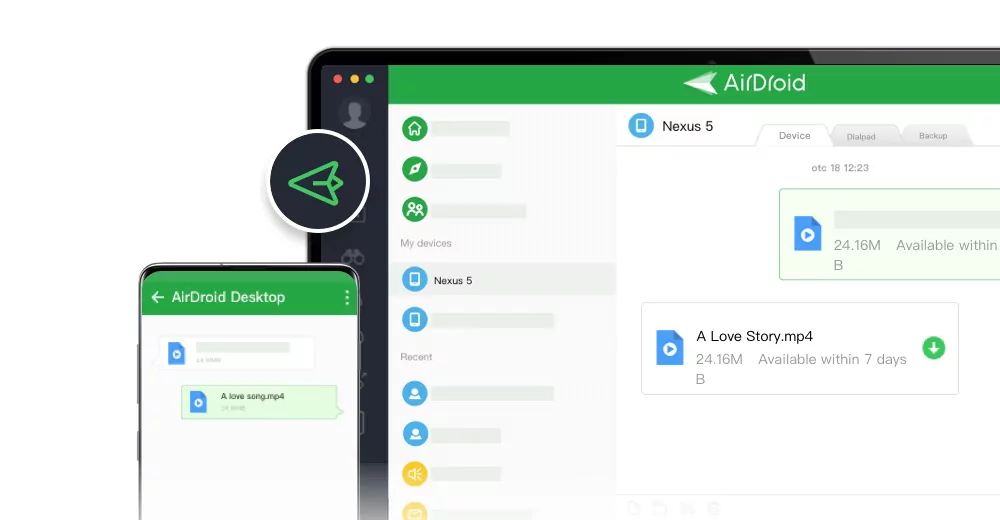Bet Meaning, Use Cases & Examples, and More
We all use the word bet quite frequently in our everyday conversations. But do we know what it means? What is the Bet meaning?
The era of social media has seen the rise of slang and acronyms that baffle many people because they don't know what it means. Some slangs are fun, i.e., LOL, Dope or OG, while others are quite freighting, for example, GTFO or FU.
Our today's slang will be Bet. You've probably come across this, but the question here is; What does "I bet" mean in texting or social media?

Bet Meaning
Well, in this article, we will explore the meaning of bet and how it has evolved over the years. We will also look at examples of how it is used in different contexts. So, read on to find out what bet means and how teens can use it in everyday language.
What Does Bet Mean in Texting?
In texting, "bet" is often used as slang for "sure" or "okay." It is a shortened version of the phrase "I bet," and it is used to indicate agreement or confirmation. This slang can also be used as a way to express agreement or to confirm something.
For example, someone might text:
- "I'll meet you at the park at 2 pm."
and the recipient might respond with the following:
- "bet."
It would indicate that they agreed to meet at the park at 2 pm.
In simple terms, the phrase bet is a fun way of conversing with your peers as it helps make the conversation sound cooler among young people (millennials and Gen Z).
Besides, it is important to note that bet and I bet can infer different things within the same conversation context. So, before we dive into reviewing how bet and I bet are used in conversations, let's first define 'I bet meaning.'
I Bet Mean in Texting
"I bet" is a phrase we can use to express agreement or confidence in a statement or prediction. For instance, if someone texts:
- "I bet it's going to rain tomorrow,"
With this text, they are expressing confidence that it will rain tomorrow.
Furthermore, in another context, this phrase can be used as an expression of challenge or agreement in a friendly manner.
Now that you know their meanings, how is a bet or I bet used in daily conversation?
Well, let's have a look.
How Bet or I Bet Is Used in Conversation
Here are several ways in which bet or I bet is used in conversations
1Indicate Agreement or Confirmation
"To indicate agreement or confirmation" means that when someone uses the phrase "bet" or "I bet," they are agreeing with something that has been said or confirming that they will do something. Here's an example:
- You: "I'll meet you at the park at 2 pm."
- Jane: "Bet."
In this example, Jane responds to your statement by indicating that they agree to meet at the park at 2 pm. They are confirming the plans made by you. Another example:
- Frank: "I think we should take the bus to the concert"
- You: "Bet"
In this example, you agree with Frank's suggestion to take the bus to the concert, which implies confirming their plans.
2Express Confidence or Certainty
When someone uses the phrase "bet" or "I bet" to express confidence or certainty, they indicate that they are very sure about something and can back it up. Here's an example:
- You: "I bet you can't finish that pizza"
- Jane: "I bet I can"
Here you're challenging Jane and expressing confidence that she cannot finish the pizza, while Jane's reply expresses certainty that they can.
Another example:
- Frank: "I bet the stock market will go up next quarter."
- You: "I bet you're right."
In this example, Frank is expressing their confidence or certainty that the stock market will go up next quarter, and you, on the other side, acknowledge that you agree with Frank's prediction.
3To Acknowledge or Accept Something
When someone says "bet" or "I bet" in response to something, it shows that they comprehend and accept it as factual, signifying their agreement. Here's an example:
- Jane: "I'm sorry, I can't make it to the meeting."
- You: "I bet you have a good reason."
In this instance, you're acknowledging that Jane cannot make it to the meeting and accepting that there must be a good reason for it.
Another good example is:
- You: The new policy will be difficult to implement.
- Frank: "I bet you're right."
In this case, Frank is acknowledging that you are correct in their assessment that the new policy will be difficult to implement, and they are accepting that as true.
4To Challenge or Dare Someone
When someone says "bet" or "I bet" to challenge or dare someone, they are implying that they don't think the other person is capable of doing something and are trying to prove it. For instance:
- Jane: "I bet you can't run a mile in under 6 minutes."
- You: "I bet I can"
Here, Jane is challenging your running ability and expressing doubt that they can run a mile in under 6 minutes, and you're accepting the challenge and daring to prove them wrong.
Another example:
- You: "I bet you wouldn't have the courage to skydive."
- Frank: "I bet I would"
Here, you're challenging Frank's courage and expressing doubt that they would skydive, and Frank is accepting the challenge and daring to prove them wrong.
5Express Willingness to Take a Risk
Using the phrase "bet" or "I bet" to express willingness to take a risk can indicate that a person is willing to put something on the line, usually money or resources, to make a prediction or gamble on an outcome. For example:
- Jane: "I bet $100 that the Patriots will win the Super Bowl."
- You: "I'll take that bet."
In this example, Jane is expressing willingness to take a risk by placing a $100 bet on the outcome of the Super Bowl, and you're willing to accept the bet and take the risk as well.
Another example:
- Frank: "I bet that the new startup will be a huge success"
- You: "I bet you're right."
Here Frank is expressing willingness to take a risk by placing a bet on the startup's outcome, and you're acknowledging the bet and expressing agreement with the prediction.
6Express Interest or Enthusiasm
Using the phrase "bet" or "I bet" to express interest, or enthusiasm indicates that they are excited about something and willing to invest their time, energy, or resources. For example:
- Jane: "I just bought a new video game."
- You: "I bet you'll love it."
In this example, you're expressing interest and enthusiasm in the new video game that Jane just bought, and they are willing to invest their time and energy in playing it.
Another example:
- Frank: "I'm thinking of taking up painting as a hobby"
- You: "I bet you'll be great at it"
Here, you're also expressing interest and enthusiasm in the hobby that Frank is considering taking up, and they are willing to invest their time and energy in supporting and encouraging them.
7Express Sarcasm
Finally, you can also use either of the phrases to express sarcasm, which helps indicate that you are insincere or ironic about something and that you don't believe it. For example:
- Jane: "I just got a speeding ticket."
- You: "I bet that went well."
Here you're expressing sarcasm about the situation, and Jane doesn't believe that getting a speeding ticket went well, and they are being ironic or insincere about it.
Another example:
- Frank: "I'm thinking of quitting my job"
- You: "I bet your boss will be so sad to see you go."
Here you're expressing sarcasm about the situation, Frank doesn't believe the boss will be sad to see the person go, and they are being ironic or insincere about it.
Can You Tell If Your Kid Is Using This Phrase?
Determining whether your kid is using this slang or any other slang word can ensure they are communicating the problem and not misbehaving around. For example, when it comes to phrases like FWB (which stands for a friend with benefits), determining whether they are using such terms is essential to prevent them from getting sucked into the wrong ends.
So, how do you effectively determine this?
Well, it is simple. All you need is a parental control app that will help you track conversations at any time or place. The best app you can use is AirDroid Parental Control, and here are the reasons why:
- Remote monitoring: Allows parents to monitor their child's phone activity remotely, including text messages, call logs, and app usage.
- Location tracking: Built-in GPS tracking feature allows parents to see their child's location at all times.
- Time restrictions: Parents can set time restrictions on their child's phone usage to ensure they are not using it excessively or at inappropriate times.
- App blocking: Allows parents to block certain apps or websites they deem inappropriate for their child.
- User-friendly interface: Designed with an easy-to-use interface, making it simple for parents to set up and use.
- Compatibility: Compatible with Android and iOS devices, making it easy for parents to monitor their child's Android mobile devices.
- Multi-Device Support: Supports multiple devices, which means parents can track multiple kids simultaneously.

Final Thoughts
In conclusion, "bet" is a versatile word we can use in many different contexts. We can use it to express agreement or confidence in a statement or prediction or as a playful way of making a challenge.
It is also used as an acronym for "Blockchain Enabled Token" in cryptocurrency. Understanding the different meanings of "bet" can help you better understand the context in which it is used and respond appropriately.
It's important to remember that the meaning of bet may vary from person to person, situation to situation, and community to community.






Leave a Reply.